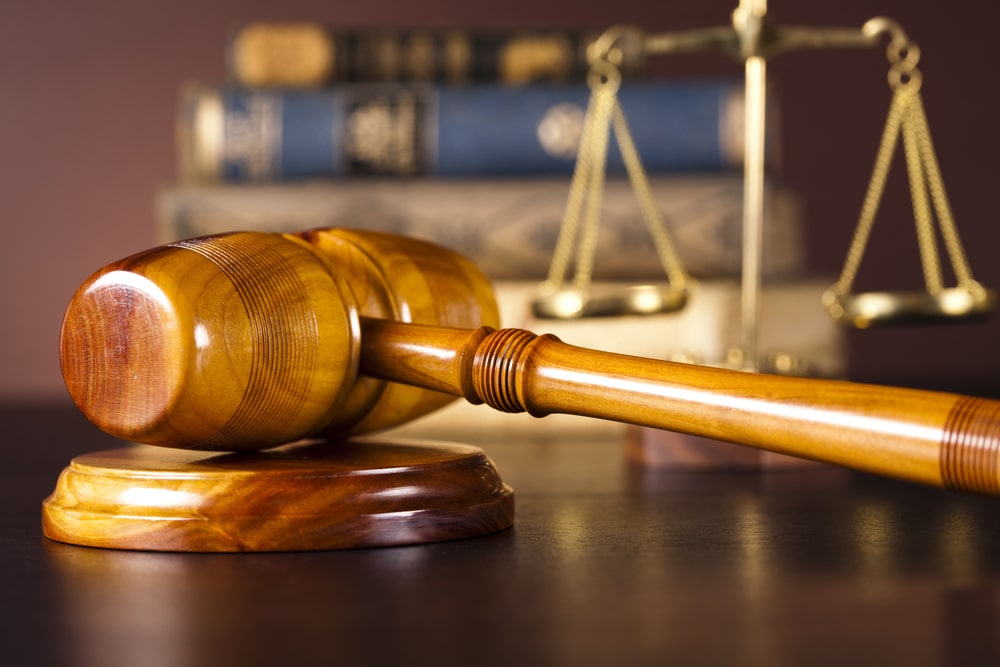Initiation Of The Investigation
Wire fraud investigations often begin with a report from a victim or a suspicious transaction flagged by a financial institution. These reports are typically reviewed by federal agencies such as the FBI or the Department of Justice. In many cases, the investigation is triggered by a pattern of suspicious activity or a significant financial loss that raises red flags. The agencies involved will begin gathering initial evidence to determine if there are grounds for a full investigation.
Collection Of Evidence
The cornerstone of a wire fraud investigation is evidence collection. Investigators focus on obtaining electronic communications such as emails, text messages, and phone records, as well as financial documents like bank statements and transaction histories. These records help establish whether the accused used wire communication systems to commit fraud. Investigators may also subpoena additional records or interview witnesses to piece together the circumstances of the alleged fraud.
Identifying The Scheme
For wire fraud charges to hold up in court, investigators must establish that a scheme to defraud existed. This involves identifying a pattern of deception or dishonest behavior intended to obtain money or property from victims. Investigators examine the content of communications, contractual agreements, and any related financial transactions to determine if false representations were made.
Tracking Financial Transactions
Wire fraud investigations often involve complex financial transactions. Investigators analyze these transactions to follow the trail of funds and determine whether they were obtained unlawfully. Financial analysts may examine transfers between accounts, identify recipients of funds, and evaluate whether the transactions align with legitimate business practices. The digital nature of wire transfers often leaves a detailed paper trail, making this process a critical aspect of the investigation.
Cooperation With Other Agencies
In many cases, wire fraud investigations involve multiple agencies working together. The FBI, IRS, and SEC may collaborate to gather evidence, analyze data, and build a case. This coordination helps ensure that all relevant aspects of the alleged fraud are thoroughly examined. Agencies also share resources to enhance their ability to track electronic communications and financial transactions across jurisdictions.
Use Of Technology
Given the digital nature of wire fraud, investigators rely heavily on advanced technology to analyze data. Forensic tools are used to recover deleted emails, track IP addresses, and analyze metadata. These tools allow investigators to uncover hidden connections and establish a timeline of events that supports their case. Technology plays a crucial role in demonstrating how the fraud was carried out and identifying those responsible.
Filing Charges
Once sufficient evidence is collected, investigators work with federal prosecutors to decide whether to file charges. The decision is based on the strength of the evidence and the likelihood of securing a conviction. If charges are filed, the defendant is notified, and the legal process begins, which may include plea negotiations, pretrial motions, or trial proceedings.
Our friends at Stechschulte Nell discuss the importance of understanding your rights during a wire fraud investigation. Working with a knowledgeable wire fraud lawyer can help protect your interests, review the evidence, and advocate for the best possible outcome. If you’re facing a wire fraud investigation, seeking legal guidance early in the process can make a significant difference in your case.

FAQs About State Wire Fraud Investigations
Wire fraud investigations conducted by the state are serious legal matters that can lead to severe consequences, including significant fines and imprisonment. Wire fraud involves the use of electronic communications or interstate commerce to defraud someone of money or property. State authorities investigate wire fraud when there is evidence of criminal intent and the use of electronic communications, such as phone lines, the internet, or other methods of interstate communication. These investigations can be complex and often require skilled legal representation by an Indiana criminal defense lawyer. Below are some frequently asked questions about state wire fraud investigations and what they entail.
What Is Wire Fraud, And How Does It Relate To State Investigations?
Wire fraud is a criminal offense that involves using interstate or international communication systems, such as phone lines, email, or the internet, to intentionally deceive someone for financial gain. State investigations into wire fraud typically begin when there are suspicions or reports of fraudulent activities that involve communication across state lines or the use of electronic communications.
Although wire fraud is often prosecuted at the federal level under the Wire Fraud Act, state law enforcement may also investigate cases of wire fraud, especially when state laws are implicated or when the fraud primarily affects residents of a particular state. The state investigation will focus on gathering evidence of fraudulent activity, such as fraudulent transactions, false representations, or schemes to steal money from individuals or businesses.
If you are under investigation, it is critical to contact an Indiana criminal defense lawyer before you are actually charged with a crime.
What Types Of Activities Can Lead To State Wire Fraud Charges?
State wire fraud charges can arise from a variety of activities that involve using electronic communications to defraud others. Common examples include falsifying information in online transactions, using email or phone calls to impersonate someone in order to steal money, or running fraudulent schemes that involve the internet, such as phishing or online investment fraud. Fraudulent activities that target consumers, businesses, or even government agencies can be investigated under wire fraud statutes. Some activities that might lead to state wire fraud charges include:
- Online fraud: Schemes that use deceptive emails, websites, or ads to trick individuals into providing personal information or money.
- Credit card fraud: Using wire communications to steal credit card information or conduct fraudulent transactions.
- Telemarketing fraud: Using telephone lines to solicit fraudulent payments or donations.
- Investment fraud: Making false representations via wire communications to convince individuals to invest in bogus schemes. These activities can be charged under state wire fraud laws if they involve state jurisdiction or impact state residents.
How Do State Authorities Investigate Wire Fraud Cases?
State authorities investigate wire fraud by first identifying the fraudulent scheme and gathering evidence that the fraud involved interstate or electronic communication. Investigators may collect digital evidence, including emails, phone records, internet service provider logs, and financial records, to trace the flow of funds and communications. The investigation may involve working with other agencies, such as federal authorities, if the case crosses jurisdictions. Typically, the process includes:
- Tracking communications: Investigators will trace emails, phone calls, or online transactions related to the fraudulent scheme.
- Forensic analysis: Digital forensics experts may be called to analyze computers, smartphones, or financial transactions to uncover fraudulent activity.
- Witness interviews: Law enforcement may interview victims or individuals involved in the fraud to establish a timeline of events and identify key evidence.
- Coordination with other authorities: In complex cases, state authorities may collaborate with federal agencies like the FBI, especially if the fraud involves large sums of money or spans multiple states.
What Are The Penalties For Conviction Of State Wire Fraud?
The penalties for state wire fraud can vary depending on the severity of the offense, the amount of money involved, and whether the fraud was committed with prior intent or criminal history. In many states, wire fraud is considered a felony, and individuals convicted may face:
- Fines: Penalties can range from hundreds to thousands of dollars, depending on the scale of the fraud.
- Imprisonment: Convictions can result in significant jail time, often ranging from several years to decades for large-scale fraud.
- Restitution: The court may order the defendant to repay victims for the money they lost due to the fraud.
- Probation: In some cases, individuals convicted of wire fraud may serve part of their sentence under probation, subject to certain conditions. The penalties for wire fraud are serious, and those facing charges need to seek strong legal defense to protect their rights and interests.
Contact A Criminal Defense Lawyer For Legal Help
If you are under investigation or have been charged with state wire fraud, it’s critical to consult with an Indiana criminal defense lawyer as soon as possible. A skilled attorney can review the details of your case, identify potential defenses, and work to protect your rights throughout the investigation and trial. The penalties for wire fraud can be severe, and having an experienced lawyer on your side can make a significant difference in the outcome of your case. Contact Hall-Justice Law Firm LLC today to discuss your case and receive the legal guidance you need to defend against wire fraud charges.


EXCELLENTTrustindex verifies that the original source of the review is Google. Justice was very informative & kind & went above & beyond for me in every way she could . I highly recommend this attorney!!!!Posted onTrustindex verifies that the original source of the review is Google. Had an initial consult with the paralegal this morning. She was so polite, and very helpful. Listened, took my info and made the process very easy, in an area where I have a tough time finding attorney's. Thank YouPosted onTrustindex verifies that the original source of the review is Google. Mrs Hall did a great job in helping me get the best outcome for my case. I highly recommend her services.Posted onTrustindex verifies that the original source of the review is Google. I was fortunate to receive help from Susannah and her team. Susannah is a highly knowledgeable expert in her field. Although my requests was relatively straightforward for such an experienced professional, Susannah and her team provided me with outstanding support and answered all of my questions. I recommend discussing your specific situation with Susannah—even if it feels stressful—because she is excellent at analyzing circumstances and presenting clear options and potential actions. I have no doubt that Susannah and her team have the expertise to provide the best insight and guidance in their field.Posted onTrustindex verifies that the original source of the review is Google. Process went smoothlyPosted onTrustindex verifies that the original source of the review is Google. Susannah Hall-Justice is an amazing attorney! She was on top of things every step of the way and I am very thankful for her!Posted onTrustindex verifies that the original source of the review is Google. I am currently a client of hers. I do get nervous going to court or just simply meeting with her as my lawyer because I never had to be in a situation that required me to need a lawyer! I feel safe with Ms. Hall-Justice because you can just tell she has your best interest! She listens, observes and make sure you are heard! I am praying to God I don’t have to look like what I’m going through because it’s stressful and I just want to go back to my regular life with my children!Posted onTrustindex verifies that the original source of the review is Google. This attorney is definitely a credit to her craft! She is very personable and never talks down to a client. She makes a person feel like he/she is actually part of what's going on. She negotiated with the prosecutor and i was offered EVERYTHING that I had hoped for and even more! I would definitely hire her again and i highly recommend that you hire her and trust her in what is often a very vulnerable and confusing time.Posted onTrustindex verifies that the original source of the review is Google. When we needed a Lafayette attorney to represent us for various charges, Susannah was all we could have hoped for. She had several charges dropped immediately and the remaining minor charges diverted for good behavior. After two months of good behavior, all charges were dismissed. Susannah and her assistant Erica were responsive, supportive and above all very effective. All at very reasonable rates. I have worked as a criminal defense lawyer in the past and I was very impressed.Posted onTrustindex verifies that the original source of the review is Google. Impressive and refreshing. I called Susannah’s office first thing in the morning to inquire about a minor legal service and left my contact information with her assistant. Susannah personally called me back only a short while later despite how busy she undoubtedly is. It turned out that the legal opinion I required had to be from a practicing attorney in a different state so we didn’t go forward. Still, the fact that she personally returned my call, and was genuinely pleasant and attentive, substantiates her very positive and personal reviews. Not to stray into the negative but what a breath of fresh air compared to most of the attorneys with whom I’ve spoken in this area - routinely terse, rude and bumptious. This (Hall-Justice) is the law office I will call first for any future legal needs. Thank you.



